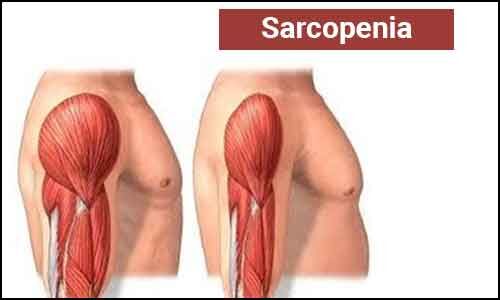- Home
- Medical news & Guidelines
- Anesthesiology
- Cardiology and CTVS
- Critical Care
- Dentistry
- Dermatology
- Diabetes and Endocrinology
- ENT
- Gastroenterology
- Medicine
- Nephrology
- Neurology
- Obstretics-Gynaecology
- Oncology
- Ophthalmology
- Orthopaedics
- Pediatrics-Neonatology
- Psychiatry
- Pulmonology
- Radiology
- Surgery
- Urology
- Laboratory Medicine
- Diet
- Nursing
- Paramedical
- Physiotherapy
- Health news
- Fact Check
- Bone Health Fact Check
- Brain Health Fact Check
- Cancer Related Fact Check
- Child Care Fact Check
- Dental and oral health fact check
- Diabetes and metabolic health fact check
- Diet and Nutrition Fact Check
- Eye and ENT Care Fact Check
- Fitness fact check
- Gut health fact check
- Heart health fact check
- Kidney health fact check
- Medical education fact check
- Men's health fact check
- Respiratory fact check
- Skin and hair care fact check
- Vaccine and Immunization fact check
- Women's health fact check
- AYUSH
- State News
- Andaman and Nicobar Islands
- Andhra Pradesh
- Arunachal Pradesh
- Assam
- Bihar
- Chandigarh
- Chattisgarh
- Dadra and Nagar Haveli
- Daman and Diu
- Delhi
- Goa
- Gujarat
- Haryana
- Himachal Pradesh
- Jammu & Kashmir
- Jharkhand
- Karnataka
- Kerala
- Ladakh
- Lakshadweep
- Madhya Pradesh
- Maharashtra
- Manipur
- Meghalaya
- Mizoram
- Nagaland
- Odisha
- Puducherry
- Punjab
- Rajasthan
- Sikkim
- Tamil Nadu
- Telangana
- Tripura
- Uttar Pradesh
- Uttrakhand
- West Bengal
- Medical Education
- Industry
Sarcopenia increases death risk in patients undergoing TAVI, finds study

Korea: Sarcopenia as measured by skeletal muscle index (SMI) significantly increases 1-year mortality risk in patients who underwent transcatheter aortic valve implantation (TAVI), suggests a recent study in the American Journal of Cardiology.
There is not much data on the association between sarcopenia and clinical outcomes in patients who underwent TAVI. Yong-Hoon Yoon, Chungnam National University School of Medicine, Sejong, Republic of Korea, and colleagues evaluated a total of 522 patients with severe aortic stenosis who underwent TAVI between March 2010 and November 2018 from the prospective ASAN-TAVI registry.
SMI was calculated using routine pre-TAVI computed tomography scan. SMI was defined as skeletal muscle area at the L3 level divided by height squared. The patients were classified into the gender-specific tertile groups of SMI. The patients' mean age was 79 years and 49% were men. Mean SMI values were 41.3 ± 6.7 cm 2/m 2 in men and 34.1 ± 6.5 cm 2/m 2 in women.
Key findings of the study include:
- The Kaplan–Meier estimates of all-cause mortality at 12 months were higher in the low-tertile group than in the mid- and high-tertile groups (15.5%, 7.1%, and 6.2%, respectively).
- In multivariate analysis, low-tertile of SMI was an independent predictor of mortality (vs high-tertile of SMI, hazard ratio 2.69).
- The all-cause mortality was substantially higher in the groups with high-surgical risk plus low SMI tertile.
- The risk assessment with addition of SMI on conventional STS-PROM score was significantly improved by statistical measures of model reclassification and discrimination.
"The prognostic impact of SMI-measured sarcopenia was more prominent in patients with high surgical risks," concluded the authors.
The study, "Prognostic Value of Baseline Sarcopenia on 1-year Mortality in Patients Undergoing Transcatheter Aortic Valve Implantation," is published in the American Journal of Cardiology.
DOI: https://www.ajconline.org/article/S0002-9149(20)31145-0/fulltext
Dr Kamal Kant Kohli-MBBS, DTCD- a chest specialist with more than 30 years of practice and a flair for writing clinical articles, Dr Kamal Kant Kohli joined Medical Dialogues as a Chief Editor of Medical News. Besides writing articles, as an editor, he proofreads and verifies all the medical content published on Medical Dialogues including those coming from journals, studies,medical conferences,guidelines etc. Email: drkohli@medicaldialogues.in. Contact no. 011-43720751


